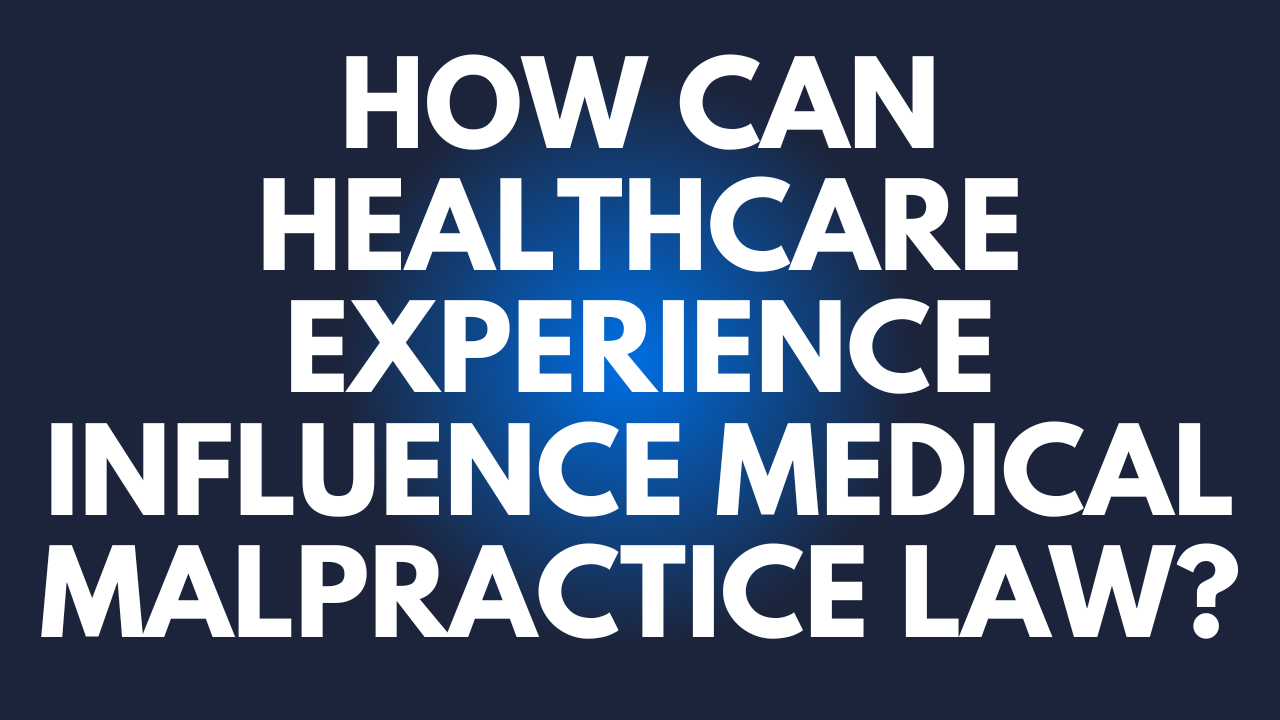Hey there!
This article delves into the intriguing confluence of healthcare and legal practice, examining how one’s expertise in healthcare may greatly influence their approach to medical malpractice law. Justice and accountability in healthcare are ensured by the confluence of the seemingly separate domains of medicine and law.
The legal field benefits from the distinct viewpoints of professionals with backgrounds in healthcare, such as doctors, nurses, and other medical professionals. The intricacies of medical malpractice lawsuits may be better navigated with their direct understanding of processes, patient care, and healthcare systems. Come with us as we investigate the important role that lawyers with healthcare experience play in the sector and the practical advantages and subtle factors that they bring to the table.
Expertise in Medicine for Legal Evaluation
Understanding the Dynamics of Healthcare Systems via the Eye of Patient Care Experience Having Fruitful Conversations with Doctors and Other Medical Staff Healthcare attorneys’ increased capacity for empathy in the face of ethical dilemmas and legal advocacy challenges
The Role of Medical Expertise in Legal Evaluation:
People who have worked in healthcare before can bring a lot of experience and expertise to their legal practice. Thanks to this groundwork, they are able to decipher intricate medical data, comprehend medical jargon, and perform sophisticated medical treatments with ease. This knowledge is important when dealing with situations of medical misconduct. An unfavorable medical result does not always constitute negligence; attorneys with experience in healthcare can tell the difference. They can more readily recognize inconsistencies in patient records, warning signs in treatment plans, and the anticipated level of care in different medical fields.
Plus, they are well-versed in the medical field, which facilitates productive teamwork with expert witnesses—an essential component of medical negligence cases. Experienced attorneys in the healthcare field are better able to choose, consult with, and prepare medical experts, leading to stronger case presentations.
People with healthcare backgrounds are in a special position to provide evidence in medical malpractice trials due to their hands-on expertise caring for patients. Their first-hand accounts may shed light on instances of poor bedside manner, lack of informed consent, and other medical errors. By using these findings, persuasive stories may be crafted to make the case more approachable and comprehensible for clients, judges, and jurors.
Furthermore, medical experts who transition into legal practice often have extensive experience questioning both parties involved in a medical negligence lawsuit. Without missing a beat, they may glean vital knowledge on the patient’s history, symptoms, and contacts with healthcare providers. By taking such painstaking steps, the legal team may greatly enhance its capacity to construct a strong case.
Healthcare background attorneys often benefit from having a thorough grasp of healthcare systems and how they work. They are well-versed in the administrative procedures, protocols, and medical staffing structure of healthcare facilities, including hospitals, clinics, and other related institutions. Because it allows attorneys to discover systematic problems that could have caused a patient injury, this information is crucial when looking into medical malpractice cases.
Also, the maze of rules that the healthcare business must follow may be better understood by attorneys with experience in the field. Medical malpractice lawsuits often include issues with healthcare compliance, medical billing, and health insurance, all of which they are knowledgeable with. Using this knowledge, we can find out things like if there were any insurance disputes or incorrect billing methods that might have caused a patient’s injuries.
Communicating Effectively with Medical Professionals: Medical professionals are notoriously reluctant to testify against their colleagues, making it difficult to build strong cases involving medical negligence. Attorneys with experience in healthcare are better able to connect with prospective expert witnesses, which increases the likelihood that they would cooperate. In order to strengthen the case’s legitimacy, this might be crucial in obtaining trustworthy expert evidence.
Being able to communicate effectively in medical terminology is also useful in business dealings and legal disputes. To ensure that the case’s merits are presented, attorneys with backgrounds in healthcare can explain complex medical ideas in a way that judges and juries can grasp. Cases involving medical malpractice might benefit greatly from this open and honest communication.
Legal Advocacy with Enhanced Empathy: A strong sense of empathy is essential in the healthcare industry, and attorneys who have worked in the field frequently have an even stronger capacity for this attribute. They are able to put themselves in the shoes of medical malpractice victims and fight harder for their rights because of this empathy. A deeper dedication to pursue justice and more convincing arguments might result from this emotional connection.
The mental and emotional toll that medical malpractice claims may have on clients is something that attorneys with backgrounds in healthcare tend to be more aware of. They are more qualified to provide both practical advice and emotional support at what may be a difficult and upsetting time. The client experience may be greatly enhanced with this comprehensive approach to legal counsel.
Healthcare Lawyers’ Obstacles and Moral Conundrums:
In medical malpractice law, having a healthcare experience has many benefits, but it also brings its own set of problems and moral quandaries. A major obstacle is avoiding or resolving possible conflicts of interest. Concerns regarding objectivity arise when considering healthcare background attorneys who may have personal or professional ties within the medical field. In order to maintain their impartiality and prevent the appearance of prejudice, they must exercise extreme caution.
When healthcare attorneys take on issues involving current or former coworkers, they may also encounter difficult moral decisions. Finding the right balance between being loyal to their clientele and the medical profession may be challenging. Maintaining the credibility of lawyers and bringing medical malpractice cases to a fair resolution both depend on their ability to strike a fair ethical balance.
I hope my examination of the ways in which a healthcare background shapes one’s perspective on medical malpractice law has shown the significant value that these individuals contribute to the field of law. To sum up, the pursuit of justice and the protection of patients are best served by the integration of legal representation with medical knowledge.
Medically trained attorneys can better understand complicated cases, interact with doctors and other healthcare providers, and identify systemic problems in the healthcare system. Advocates for victims of medical negligence, their capacity to feel compassion for their plight elevates the standard of legal representation.
them is critical, however, to recognize the unique confluence of professions and the possible conflicts and ethical issues that may emerge from them. Healthcare background attorneys must skillfully straddle the delicate line between being devoted to the medical community and fiercely representing their clients.
Ultimately, their involvement in medical malpractice cases is a reflection of the dedication to fairness, responsibility, and better healthcare for everyone, which is good for society overall.












